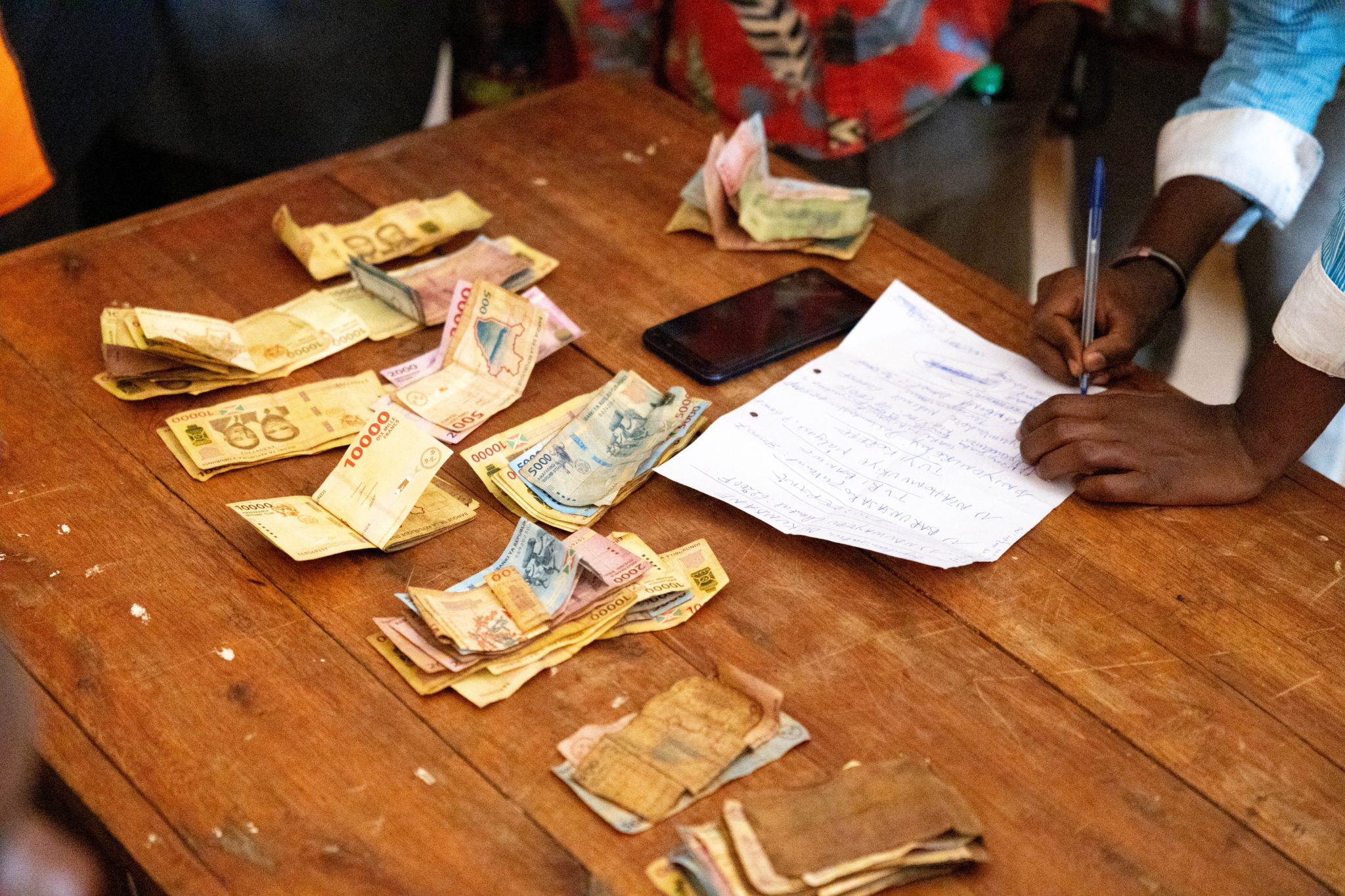Originally posted by Peter Greer, HOPE’s president and CEO, on his blog.
I’m grateful for those who have reached out over the last weeks to ask how HOPE International is impacted by the recent changes to U.S. foreign assistance funding. Thank you for your concern, friendship, and prayers.
The short answer is that outside of one-time funding opportunities (e.g., related to COVID-19 shutdowns), HOPE does not accept government funding. Even though our ability to continue providing Christ-centered poverty alleviation services is not directly impacted, I am concerned about the impacts on HOPE and our partners—even in the short term—and on many families around the world.
Part of what I love about the HOPE International savings groups I meet is their embodiment of hope for the future, their assertion that today’s sacrifice is a seed planted for tomorrow’s harvest. But one HOPE savings group I visited in Burundi years ago seemed motivated by just the opposite. Every member of this group had been diagnosed with HIV/AIDS—and they were saving for their funerals. They had seen other families fall into abject poverty through crushing funeral debt, and they longed to ease that inevitable burden for their families. They met, prayed, and saved together in a final act of love for their families.
Then PEPFAR (President George W. Bush’s global initiative to contain and control the HIV/AIDS pandemic) expanded to their community in rural Burundi. In just over 20 years, PEPFAR has contributed to saving an estimated 26 million lives globally, largely by providing antiretroviral treatment in communities like the one I visited in Burundi. New York Times columnist Nicholas Kristof helps us imagine the magnitude of that number, writing in 2023 that this number is far, far greater than all the deaths of American troops in all wars in the country’s history back to 1776.[1]
Consistently treated, those with HIV can live normal lifespans. As beneficiaries of PEPFAR, these savings group members were at last able to save for their future: dreaming of business ventures, children’s school fees, and home repairs. They began investing in life, not death.
But HIV—like many other diseases—is managed, not cured. Treatment is administered through daily pills or bi-monthly injections. Consistency matters.
When news of the funding pause and stop work orders reached me, my first thought was of these group members and their ongoing medical needs. I wondered how long it would be until they were once again saving for their funerals.
At the time of writing, PEPFAR is among the initiatives that have been issued a limited waiver to continue some of their operations. I am grateful for the recognition of these programs’ significance, even though the future of international aid to those most in need—and the future of these group members—remains very much uncertain.
While people of good faith will continue to debate whether it is within or outside the role of the U.S. government to intervene in challenges beyond our nation’s borders, Scripture is clear that it is the place of Christ’s followers to care for the vulnerable and love our neighbors, near and far (e.g., Proverbs 31:8-9, Isaiah 1:17, Matthew 25:40, Genesis 22:18, Luke 10:25-37). We must not confuse our national response with our Christian mandate.
This time of uncertainty and financial precarity for many humanitarian initiatives is a time for the Church to step forward to welcome the stranger, care for the sick, feed the hungry, and invest in communities in poverty. Matthew 25 still provides clarity on our mission to see and respond to those in need, as if we are serving Christ himself.
Government funding for USAID amounted to roughly $43.8 billion dollars in 2023, the most recent year for which data was available.[2] It’s a significant but not insurmountable sum. There are an estimated 2.63 billion Christians in the world [3] and 232 million in the United States alone.[4] We could make up the shortfall if every Christian worldwide gave just $16.65 or if every Christian in the United States gave $188.70.
This is not an impossible task. It is a moment for a movement to bear one another’s burdens—and personally and organizationally, we are eager to come alongside our peers and partners most impacted and to keep showing up in the communities where we serve. For us as well as savings group members, today’s sacrifice is a seed planted for tomorrow’s harvest. That harvest could be significant indeed if a watching world sees the Church respond to the uncertainty of this moment with the love and compassion of Christ. May it be our finest hour.
###
We invite you to join HOPE in prayer for the organizations most impacted, and especially for the families they serve. We also invite you to consider giving to help partners of HOPE stabilize in the midst of financial and operational disruption. We recommend supporting organizations like World Relief (partners with us in the Global Lift Collective and the Christian Economic Development Network) and Untold, one of our savings group partners in East Africa. You can also learn more about the Accord Network (read their statement here), a Christian relief and development network that HOPE participates in.
Let’s keep showing up for those who live in poverty, asking God for strength for today and bright hope for tomorrow.
Pictured above: Men and women repay loans at the Ninga washing station in Burundi
[1] https://www.nytimes.com/2023/04/08/opinion/aids-pepfar-bush.htm
[2] https://www.pewresearch.org/short-reads/2025/02/06/what-the-data-says-about-us-foreign-aid/#
[3] https://www.gordonconwell.edu/wp-content/uploads/sites/13/2024/01/Status-of-Global-Christianity-2024.pdf
[4] Gallup polling reflects 68% of the U.S. population identifies as Christian (https://news.gallup.com/poll/358364/religious-americans.aspx). Applying that percent to a U.S. population of 341,340,565 at the time of writing (12:45 p.m., February 14, 2025, https://www.census.gov/popclock/), we estimate 232 million Christians in the United States.
















